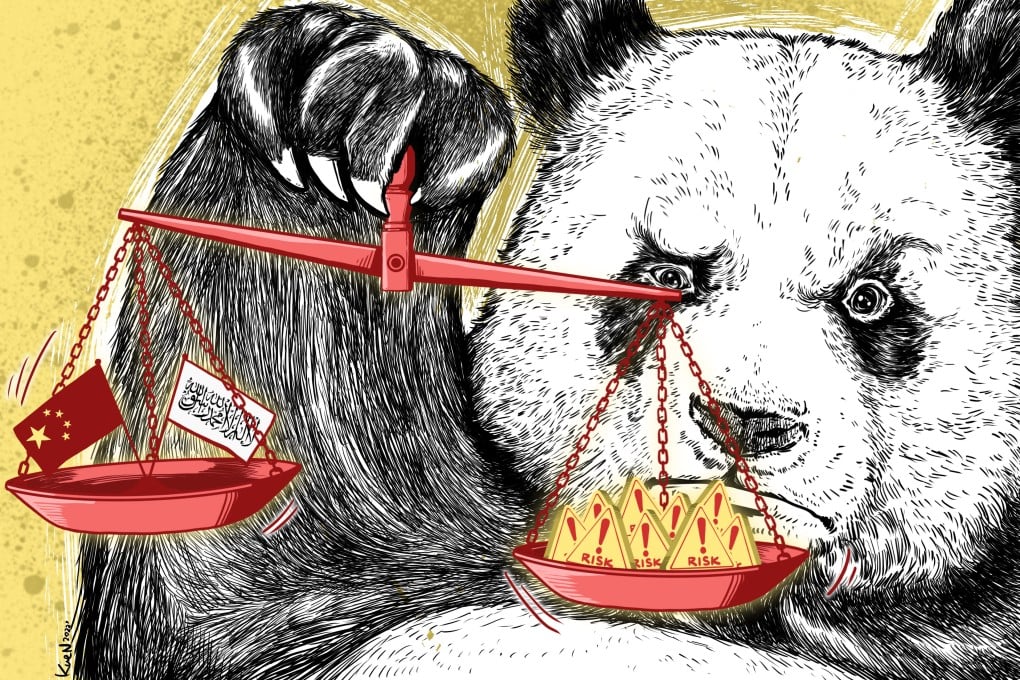Advertisement
China still weighing up risks of engagement with Afghanistan’s Taliban government, experts say
- Beijing has called for release of billions of dollars of central bank assets frozen since group took power
- Lack of international recognition adds to Chinese reluctance to fund Afghan infrastructure projects
Reading Time:5 minutes
Why you can trust SCMP
10

An earthquake that killed at least 1,000 people in Afghanistan last month struck when the country was at its most vulnerable.
The Taliban government that took control in August was already struggling to provide basic healthcare and education and keep food plentiful and affordable, while the bombing of schools and places of worship by sectarian rivals continued.
It did not help that more than US$9 billion in Afghan central bank assets held in Western countries were frozen after the Taliban took power. Around 75 per cent of Afghan government spending was previously financed by foreign aid grants, according to the World Bank, but banks, fearful of sanctions and breaching counterterrorism laws, have been refusing to transfer funds to Afghanistan, hampering efforts to shelter quake survivors and control the spread of diseases.
Advertisement
China has been proactive in reaching out to the Taliban to forge semi-official ties and has called for the release of frozen funds. But the future of ties between the countries remains uncertain, analysts say, because of Afghanistan’s volatility and Beijing’s reservations about whether relations can lead to a stable and profitable partnership.
“In China’s assessment, it faces great risk with the situation in Afghanistan,” said Zhu Yongbiao, a professor at the Centre for Afghanistan Studies at Lanzhou University in China’s Gansu province. “That’s to say that China realises that there is political uncertainty.”
Advertisement
That uncertainty stems from whether the Taliban can hold on to power and gain international recognition as the lawful government of Afghanistan, he said, which added to the existing reluctance of Chinese companies to fund infrastructure projects due to security concerns and scepticism about economic returns.
Advertisement
Select Voice
Select Speed
1.00x
